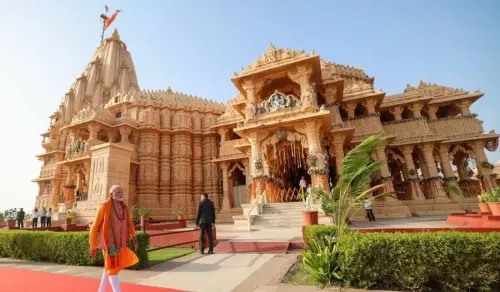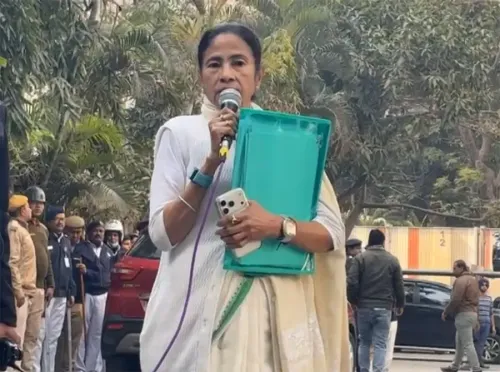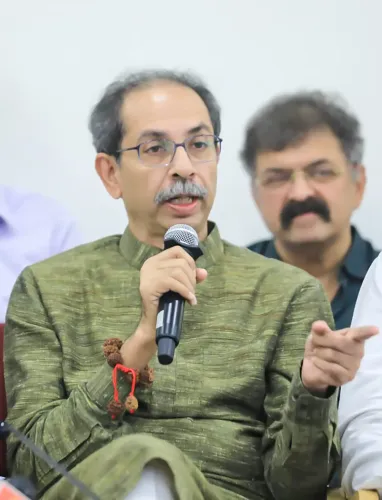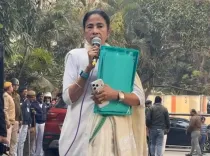Is India Scripting a New Chapter of National Renewal in PM Modi's Decisive Decade?
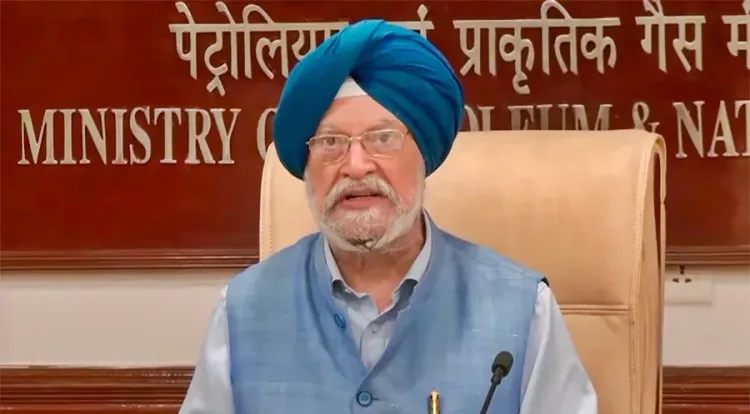
Synopsis
Key Takeaways
- India is undergoing national renewal under PM Modi's leadership.
- Over 25 crore people lifted out of multidimensional poverty.
- Significant investments in semiconductor manufacturing.
- India has the third-largest startup ecosystem globally.
- Jal Jeevan Mission has improved water access for millions.
New Delhi, June 8 (NationPress) India is charting a bold new course of national renewal across various domains—economic, social, and strategic—under the guidance of Prime Minister Modi, as articulated by Petroleum Minister Hardeep Singh Puri in a recent article.
In democracies, the expectation is that they meet a higher standard in delivering services to those who are unserved and underserved. In India, this scrutiny is particularly stringent. Here, no slogan endures without real backing, and every claim carries significant implications. True transformation must touch the lives of every individual, for in our democracy, the principle of Antyodaya casts a vote, as stated by the minister.
Thus, one year into Modi's 3.0 administration, the decisive victories in Delhi, Maharashtra, and Haryana are more than mere political achievements; they are a clear message that in contemporary India, service delivery outshines mere rhetoric in building trust, the minister elaborated.
Puri emphasized that initiatives rooted in the philosophy of 'Sarvodaya through Antyodaya' are designed to ensure that no citizen is left behind. Over 25 crore individuals have been lifted out of multidimensional poverty. The Pradhan Mantri Kisan Samman Nidhi (PM-KISAN) has allocated over Rs 3.68 lakh crore to more than 11 crore farmers. The 'Lakhpati Didi' initiative has empowered over one crore rural women to earn annual incomes exceeding Rs 1 lakh. Nearly three crore houses have been sanctioned under the Pradhan Mantri Awas Yojana.
Moreover, the Jal Jeevan Mission has connected over 15.44 rural households to tap water. The Ayushman Bharat Pradhan Mantri Jan Arogya Yojana (AB PM-JAY) has been expanded to provide free health coverage of Rs 5 lakh annually for all citizens aged 70 and above, irrespective of income, benefiting approximately six crore senior citizens by providing them comprehensive healthcare access and financial relief. This scheme has also been extended to frontline community health workers.
PM Modi’s unwavering commitment to a zero-tolerance policy against terrorism was evident in the rapid response to the Pahalgam attack, aimed at innocent tourists. The nation stood united in grief but also showcased its resolve through Operation Sindoor, executed with precision and dominance, reaffirming its commitment to combat terrorism and safeguard its citizens.
Puri further noted that the world witnessed the technological and strategic superiority of Indian defense forces, backed by the decisive leadership of the Prime Minister during the success of Operation Sindoor.
Since 2014, India’s defense manufacturing has undergone rapid modernization, with a notable increase in exports. This transformation is deliberate. Under the Atmanirbhar Bharat initiative, key reforms like the Defence Acquisition Procedure, Defence Production and Export Promotion Policy, and the allowance of 100% FDI in certain sectors have empowered local firms.
The introduction of two dedicated PLI schemes for drones and components has further fueled next-generation innovation. Today, Indian-designed missile systems, armored vehicles, and naval platforms are not only utilized by our forces but are also exported to over 80 countries, enhancing India’s image as a regional security provider at a time when global trust in reliable defense partnerships is in high demand.
Manufacturing remains central to this vision. India is advancing in the semiconductor sector, propelled by significant investments and government incentives. Tata Electronics is building a Rs 27,000 crore semiconductor assembly and testing facility in Assam, anticipated to commence operations by mid-2025, generating approximately 27,000 jobs. In addition, a Rs 3,706 crore joint venture between HCL and Foxconn is set to establish a semiconductor unit in Jewar, Uttar Pradesh, focusing on display driver chips, with production expected to begin in 2027, the minister further explained.
He also pointed out that India now boasts the third-largest startup ecosystem globally, with over 1.57 lakh recognized startups, including more than 100 unicorns and over 3,600 deep-tech ventures focused on AI, biotech, and semiconductors.


